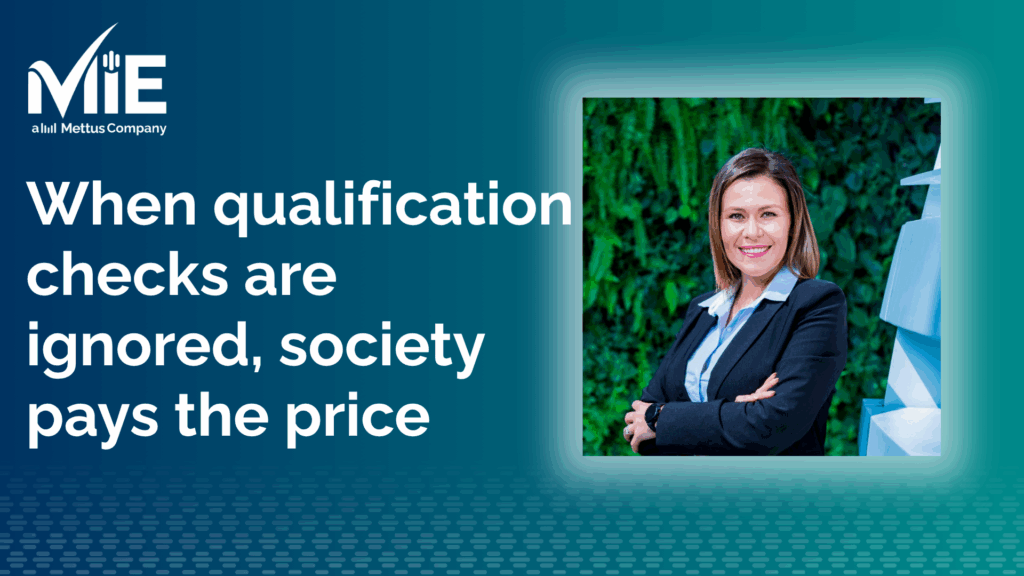When Qualification Checks are Ignored, Society Pays the Price

The impact of fraudulent qualifications extends far beyond corporate environments, affecting universities, professional bodies, and employers across sectors. Qualification checks should be seen as a universal responsibility, not a corporate obligation, because behind every certificate or title is an assumption that it stands for genuine achievement.
We like to believe that credentials reflect truth. A matric certificate should mean that someone has passed Grade 12. A university degree should mean that the graduate has completed the required studies. Membership in a professional body should mean that the person has been tested, trained, and verified. Yet recent cases show how fragile that trust can be, and how easily falsified qualifications slip through the cracks when they are not checked.
One case involved a woman who worked as a teacher for almost a decade, earning more than a million rand in salary. On paper she had a matric certificate and a teaching degree. In reality she never passed matric. She had failed Grade 12 several times yet gained entry to university using a falsified matric certificate. She went on to graduate and secured a teaching position using documents that looked authentic but were never properly verified. At every stage, from the university to the schools to the district office, checks were either skipped or insufficient. Only years later, after a whistleblower spoke out, was the fraud uncovered, and criminal charges laid.
Another case involved an employee at a major water utility who presented a chemical engineering degree that he never obtained. He joined a graduate programme in 2008 and advanced in his career for eight years. It was only when he applied for another position in 2016 that the company finally verified his qualifications. The university confirmed that no such degree had ever been issued to the individual, and the court ordered him to repay millions in earnings he had received under false pretences.
These cases reveal a truth that goes beyond the individuals involved. The responsibility does not rest with professional bodies alone. Universities must carefully check matric certificates and prior learning before admitting students. Employers must treat verification as a non-negotiable step at the start of the hiring process, not as an afterthought years later. Professional bodies must go further than simply collecting copies of documents. They must confirm directly with issuing institutions that qualifications are valid before granting membership.
When any link in this chain is weak, the system fails. Children end up being taught by people who are not qualified. Patients’ safety is at risk when untrained practitioners are allowed to practise. Companies lose money and credibility. Most damaging of all, trust in education, healthcare, and other professions is eroded. The cost is always carried by ordinary people who deserve better.
South African law already makes it a criminal offence to misrepresent qualifications, with penalties that include either paying a fine or imprisonment. But laws alone are not enough. Verification must become a consistent practice at every level.
At MIE we believe that verification should be embedded at each stage of the journey. When learners apply to university, when degrees are awarded, when employees are hired, and when professionals register for membership. When all stakeholders commit to rigorous qualification checks, fraudulent qualifications have little room to succeed. Society benefits, trust is strengthened, and those who have earned their achievements honestly are protected.
By Jennifer Barkhuizen – Mettus Head of Marketing